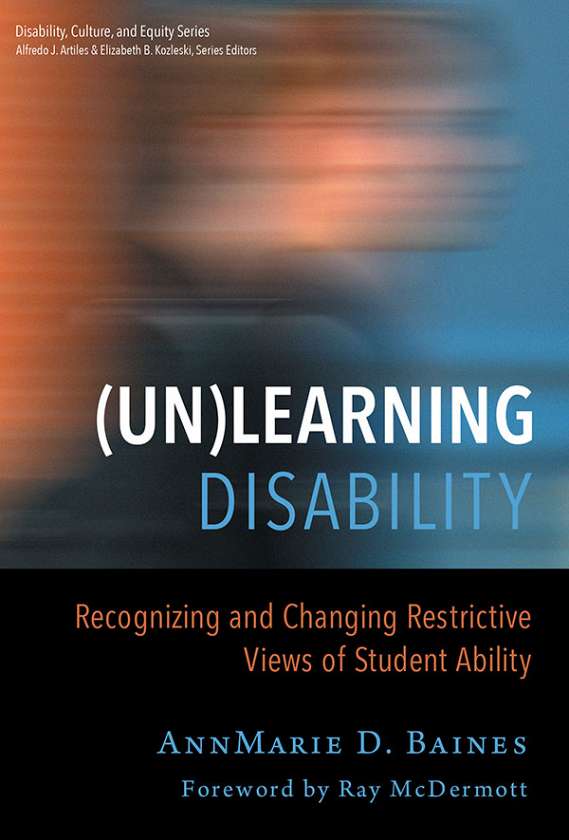Professors: Request an Exam Copy
Print copies available for US orders only. For orders outside the US, see our international distributors.
Publication Date: March 7, 2014
Pages: 192
Series: Disability, Culture, and Equity Series

How do high school students confront and resolve conflicting messages about their intelligence and academic potential, particularly when labeled with social and learning disabilities? How does disability become “disablement” when negative attitudes and disparaging perceptions of ability position students as outsiders? Following the lives of adolescents at home and at school, the author makes visible the disabling language, contextual arrangements, and unconscious social practices that restrict learning regardless of special education services. She also showcases how young people resist disablement to transform their worlds and pursue pathways most important to them. Educators and scholars can use this important resource to recognize and change disabling practices that are often taken for granted as a natural part of schooling.
Book Features:
AnnMarie D. Baines is an assistant professor in the Department of Secondary Education at San Francisco State University.
"In (Un)Learning Disability, Baines weaves the experiences of eight students into a convincing, powerful call to the field: confronting the deep-seated disabling practices in today’s schools and empowering students to gain ownership of their identity development must become a priority."
—Harvard Educational Review
“This book will touch everyone. The stories ring with familiar pain, strategies of persistence, and the randomness of what counts for success or failure.”
—Shirley Brice Heath, Stanford University
“AnnMarie Baines shows us how LD can be rephrased, readdressed, and reworked. LD can be a good idea again, but the labels have to be tied to conditions of growth, identity enhancement, and institutional change.”
—From the Foreword by Ray McDermott, professor, Stanford Graduate School of Education
“AnnMarie Baines's wonderful book demonstrates how environments can either limit or expand possibilities for children and youth who have learning differences. Through compelling case histories she demonstrates how unquestioned institutional practices in schools can have devastating effects on the potential of young people perceived to be disabled. On the other hand, these resilient young people's stories give us hope that universally designed, engaging, strength-based approaches can unlock potential promoting equity and justice for all."
—Thomas Hehir, Silvana and Christopher Pascucci Professor of Practice in Learning Differences, director, Special Studies Program, Harvard Graduate School of Education
"Through compelling narrative vignettes and clear expository commentary, the author makes a persuasive case that adolescents' ‘abilities’ and ‘disabilities’ are situational, not fixed. The moral of her stories is this: Change the social situations of learning to foreground and affirm ability rather than disability."
—Frederick Erickson, George F. Kneller Professor of Anthropology of Education, emeritus, University of California, Los Angeles
Professors: Request an Exam Copy
Print copies available for US orders only. For orders outside the US, see our international distributors.